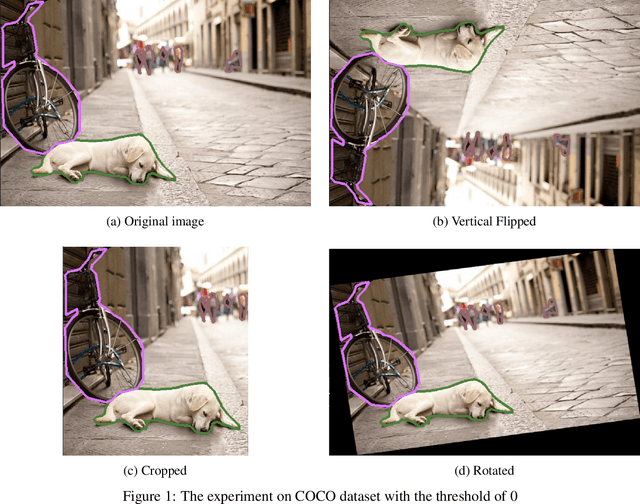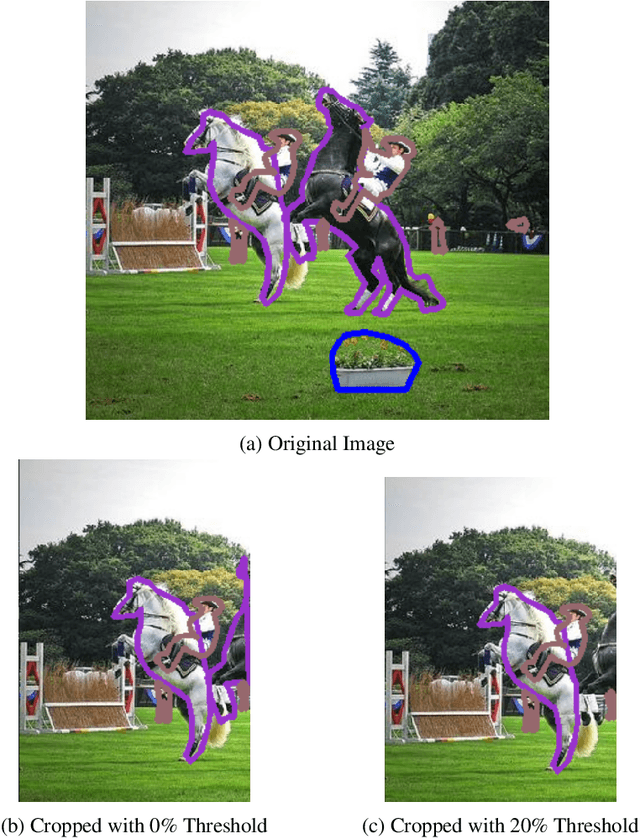Mohammad Javad Ahmadi
AugmenTory: A Fast and Flexible Polygon Augmentation Library
May 07, 2024


Abstract:Data augmentation is a key technique for addressing the challenge of limited datasets, which have become a major component in the training procedures of image processing. Techniques such as geometric transformations and color space adjustments have been thoroughly tested for their ability to artificially expand training datasets and generate semi-realistic data for training purposes. Data augmentation is the most important key to addressing the challenge of limited datasets, which have become a major component of image processing training procedures. Data augmentation techniques, such as geometric transformations and color space adjustments, are thoroughly tested for their ability to artificially expand training datasets and generate semi-realistic data for training purposes. Polygons play a crucial role in instance segmentation and have seen a surge in use across advanced models, such as YOLOv8. Despite their growing popularity, the lack of specialized libraries hampers the polygon-augmentation process. This paper introduces a novel solution to this challenge, embodied in the newly developed AugmenTory library. Notably, AugmenTory offers reduced computational demands in both time and space compared to existing methods. Additionally, the library includes a postprocessing thresholding feature. The AugmenTory package is publicly available on GitHub, where interested users can access the source code: https://github.com/Smartory/AugmenTory
Video-based Surgical Skill Assessment using Tree-based Gaussian Process Classifier
Dec 21, 2023Abstract:This paper aims to present a novel pipeline for automated surgical skill assessment using video data and to showcase the effectiveness of the proposed approach in evaluating surgeon proficiency, its potential for targeted training interventions, and quality assurance in surgical departments. The pipeline incorporates a representation flow convolutional neural network and a novel tree-based Gaussian process classifier, which is robust to noise, while being computationally efficient. Additionally, new kernels are introduced to enhance accuracy. The performance of the pipeline is evaluated using the JIGSAWS dataset. Comparative analysis with existing literature reveals significant improvement in accuracy and betterment in computation cost. The proposed pipeline contributes to computational efficiency and accuracy improvement in surgical skill assessment using video data. Results of our study based on comments of our colleague surgeons show that the proposed method has the potential to facilitate skill improvement among surgery fellows and enhance patient safety through targeted training interventions and quality assurance in surgical departments.
 Add to Chrome
Add to Chrome Add to Firefox
Add to Firefox Add to Edge
Add to Edge